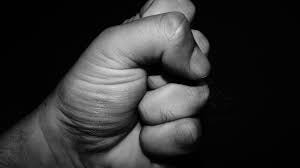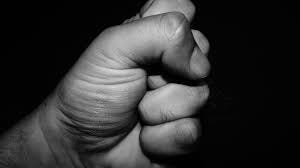Unclench
Most of the eggs have been discovered. The chocolate enjoyed. Songs have been sung. Sermons were preached. Prayers offered. New ties and dresses paraded. Ham eaten. Leftovers stored. Family left. The hype is over. Easter 2024 is history. Perhaps it’s like finishing a book or fitting that last piece of a puzzle into place with that subtle sweet and sour aftertaste.
We get it. What we celebrate on Easter Sunday changes eternity for us. Love put Jesus on the cross. Love held Jesus on the cross, and love lifted Jesus from the grave. If we’ve trusted what Jesus did over the course of three days and why he did it, the grave will not hold us either. We’re invited to return to the holy place that we were designed to share with a holy God because Jesus redeemed us, doing what we could never do. He made us holy.
But that experience, while too incredible to grasp with words, will take place either upon Christ’s return or after we die. So, what now? We’ve eagerly proclaimed that the first Easter changed everything. But what about today? What about our lives today looks different because we celebrated Easter?
Why do we celebrate holidays? The purpose of most holidays can be summed up in two words – “to remember.” For those who have long ago trusted Christ to unlock the gate to the garden for us, why do we need to remember? If our eternity in heaven is guaranteed, what’s the purpose of recelebrating every year? Perhaps there are several reasons the church needs reminding.
Certainly, our Easter celebration should spark gratitude in the heart of every believer. Gratitude is the driving force behind most of what we refer to as Christianity or spiritual disciplines. It’s gratitude, rather than obligation or fortitude, that sustains discipleship, worship, fellowship, studying the Word, continual prayer, service, and loving one another through difficulties. Gratitude drives the repentance that leads us to live more like Jesus than our old selves.
Gratitude should drive us to want to do everything we can to reconnect our loving Father to as many of his wayward children as possible. Gratitude for what Jesus did that first Easter weekend should send us doing and going wherever necessary to seek those who are lost.
While repentance and outreach may seem daunting, neither is as counter cultural as something else our Easter celebration should prompt. If we understand that we will each eventually die, we believe that what awaits us beyond the grave is exponentially better than the best this fallen world has to offer, and we’ve realized that we won’t take a single thing with us into heaven – not an investment, not a possession, not an experience, not a title, not a toy, not even an achievement…, then our Easter celebration should prompt us to loosen up. We should unclench our fists from what we hold so tightly in this world.
Am I suggesting that you are somehow wrong for seeking or having investments, possessions, experiences, titles, toys, or achievements? Well, there is nothing inherently wrong or evil with anything on that list. I’ve known countless godly people who had all of the above. Yet, they were not clenching them. Godly people don’t hold so tightly to the temporary things of this earth that they impede themselves or others from prioritizing who Jesus is, what he has done, and what he promises over everything else.
Think about it. People who have not trusted Jesus to save them from the universal problem of sin, have no hope beyond the grave. Everything they value and hope for will be contained within the dash between the two dates on their headstone. Most will hoard friendships, possessions, experiences, accomplishments, victories… There is nothing else for them. They will clench their fists around what they see. They are going to focus on accumulating as much as possible in this world vying with anyone who might stand in their way. If they give, they will give for the purpose of being acknowledged and remembered through visible memorials. They are going to struggle with sharing, because what they have in this life is all they have.
But Easter separates the world into two groups, those who have trusted the promise of so much more than we can imagine beyond the grave and those who have not trusted that promise. Sure, there may be some crossover with some kind, generous lost people out there. They have no life beyond the grave, no hope, yet they are not clinging to the things of this world. Yet, there should be no one who has fully trusted the promises of Jesus still clenched around the things of this world so tightly that it impedes one’s focus on Jesus, his love, and his calling.
Loosen up. Unclench. See what happens.
Grace & Peace,
John




